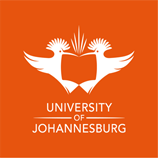The purpose of this qualification is to develop the ability of the student to question, analyze and interpret tourism and hospitality management issues within a global context with a focus on industry specific sectors.

The purpose of this qualification is to develop the ability of the student to question, analyze and interpret tourism and hospitality management issues within a global context with a focus on industry specific sectors.
This purpose is achieved through the delivery of a research-based dissertation at the Masters Level where the student will show evidence of scientific research and the ability to reflect in the context of tourism and hospitality management.
The programme therefore assists in the continuing professional development of managers and leaders in tourism and hospitality management.
Admission Requirements
The minimum admission requirement is a Postgraduate Diploma or Bachelor of Tourism and Hospitality Management Honours or an equivalent qualification at NQF level 8 with an average of 65%.
In addition, the student must be able to develop a research proposal for the intended research project. The selection and allocation of postgraduate students depend on the availability of supervisors.
Selection Process
The selection of Master’s students will be done in accordance with rules and regulations of the Higher Degrees Committee of the University of Johannesburg as stipulated for inter-disciplinary programs.
The School of Tourism and Hospitality (STH) Research Committee may prescribe a module or modules, at NQF LEVEL 8 or 9 as a supportive measure to successfully complete the qualification.
This applies when the STH Research Committee concludes that the student’s knowledge of research needs to be updated or when the research topic extends to issues insufficiently covered at the graduate level.
Vibrant, multicultural and dynamic, the University of Johannesburg (UJ) shares the pace and energy of cosmopolitan Johannesburg, the city whose name it carries. Proudly South African, the university is alive down to its African roots, and well-prepared for its role in actualizing the potential that higher education holds for the continent's development.
UJ has transformed into a diverse, inclusive, transformational, and collegial institution, with a student population of over 50 000, of which more than 3000 are international students from 80 countries. This makes UJ one of the largest contact universities in South Africa (SA) from the 26 public universities that make up the higher education system.
The vision of the UJ is to be "an international University of choice, anchored in Africa, dynamically shaping the future". The mission can be described as follows: "inspiring its community to transform and serve humanity through innovation and the collaborative pursuit of knowledge".
These are underpinned by four values, namely: imagination, conversation, regeneration and ethical foundation.
The six strategic objectives provide a focused means for realising the Vision, Mission and Values of the University as set out above. They further represent a re-working of the original UJ Strategic Thrusts 2020 in the context of a wider positioning of the University as "The Pan-African" Centre for Critical Intellectual Inquiry, with the primary goal of achieving global excellence and stature.
The six strategic objectives are:
Recognized as the country's second strongest brand, UJ offers world-class, internationally recognized academic programmes based on curricula informed by cutting-edge developments in both undergraduate and postgraduate education, and that are designed to prepare students for the world of work and for global citizenship.
Our curriculum is increasingly reflective of previously marginalized scholarship that talks to a transformation and decolonisation agenda, with Africa at its core.
© 2025 coursetakers.com All Rights Reserved. Terms and Conditions of use | Privacy Policy